Belgrade hosts 50th Non-Aligned Movement summit
Delegations of the Non-Aligned Movement (NAM) states are in the Serbian capital city to mark the 50th anniversary of its first summit in Belgrade in 1961.
Monday, 05.09.2011.
09:25

Delegations of the Non-Aligned Movement (NAM) states are in the Serbian capital city to mark the 50th anniversary of its first summit in Belgrade in 1961. The summit was opened on Monday with an address from Egypt's Foreign Minister Mohamed Kamel Amr, whose country currently presides over the organization. Belgrade hosts 50th Non-Aligned Movement summit "Today's meeting, 50 years after the founding assembly, is an indicator of the strength of our movement and we are grateful to the founders, the historic leaders who led our movement," Amr addressed the participants at the Serbian parliament. Fifty years since its establishment, the Non-Aligned Movement is now in need of a more progressive vision to achieve its goals, Amr continued. Amr recalled the role of the movement at the time of its creation, namely, to support the independence of developing countries, to struggle against colonialism in the fields of politics, economy and social issues, as well as to strengthen the capacities of countries in facing changes. "Even though the bloc-oriented division has failed, with the world becoming a unipolar one, the movement has evolutionized and developed even further," Amr said, recalling the fact that NAM only had 25 members in 1961, while now it comprises two thirds of the entire world. The movement is based on noble principles that it managed to deepen and consolidate, he added, pointing out that the time was ripe for NAM to become a genuine forum for interaction with other powers - "particularly now that the UN were undergoing reforms". In his address, the Egyptian official touched on the issue of the Palestinian territories, calling on all former Yugoslavia countries who have yet recognized Palestine as an independent country to do so. The movement will hold a meeting on Palestine on the sidelines of a UN General Assembly session in order to coordinate efforts aimed at bringing about the recognition of the country's independence, Amr said. He also commented on the situation in Egypt, pointing out that the revolution in early 2011 saw the involvement of Egypt's entire society, but the young people in particular, who wanted a peaceful democratization of the country, freedom and social justice. The revolution brought about significant changes in the country and made it possible for Egypt to assume greater responsibilities both internationally and regionally, he said. The opening ceremony was also attended by Serbia's President Boris Tadic, Prime Minister Mirko Cvetkovic, Parliament Speaker Slavica Djukic-Dejanovic, Deputy PM and Interior Minister Ivica Dacic, other cabinet ministers, and the gathering's formal host, Foreign Minister Vuk Jeremic. Earlier on Monday, the delegations attended a reception in their honor organized by Belgrade Mayor Dragan Djilas. More than 100 delegations participating in the event in the event consist of foreign ministers, deputy ministers, special envoys and other officials. Vuk Jeremic said ahead of the summit that the UN General Assembly nothwithstanding, the Belgrade conference would be the biggest gathering in the world this year. Former Yugoslav Foreign Minister Budimir Loncar has been announced as a special guest. The guest list includes a number of top officials from the UN, the Organization of the Islamic Conference, the Arab League and the African Union. Among the participants will also be the representatives of the former Yugoslav republics - Slovenia's and Montenegro's Foreign Ministers Samuel Zbogar and Milan Rocen, State Secretary of the Croatian Ministry of Foreign Affairs Mario Nobilo, and Deputy Foreign Minister of Macedonia Zoran Petrov. Europe is represented by Hungary, Finland, Spain and Cyprus - which, along with Yugoslavia, was the only European country that took part in the first Non-Aligned Summit in Belgrade 50 years ago. At this year's two-day gathering, the first day will mark the anniversary, while participants will also be addressed by President of Serbia Boris Tadic at the parliament building. On the second day, two panels will be held at the Palace of Serbia, and the first will be opened by Serbian Foreign Minister Vuk Jeremic. At the same time, the Chambers of Commerce of Serbia and Belgrade, the Serbian Investment and Export Promotion Agency and 15 leading companies in the country will present the potential of Serbia and the possibilities for cooperation with Non-Aligned Movement members. The NAM today has 118 countries as full-fledged members. This number represents about two-thirds of the UN, while member-states of the movement have a population of nearly two billion people. The movement also has 20 countries as observers, including Serbia. Vuk Jeremic has been quoted as saying that the country "will not change its observer status with the organization". The Serbian parliament in Belgrade hosts the summit's participants (Tanjug)s "Timeless principles" Serbian President Boris Tadic said Monday addressing the Non-Aligned Movement Ministerial Conference in Belgrade that the Movement's founders crafted a vision of a more equitable world community, predicated on the establishment of a new type of international relations - one that scrupulously respects the sovereignty and territorial integrity of states. "Their aim was to establish a lasting and universal peace; an inclusive system of collective security; a general disarmament regime; a fair and just mechanism to transcend the gap between developed and developing; social justice, human rights and environmental protection; and coexistence amongst countries, regardless of their size and political system," Tadic said. Serbia is not a member of NAM, but an observer state, but in our foreign policy, the values we embrace as we engage with all other states in the global arena, are still predicated on continuing to respect the universal principles of Non-Alignment, an elaboration of the UN Charter, he said. "We feel that it is in Serbia's national interest to deepen and renew the historical friendships that were cultivated over decades. Our intention is to further intensify the present level of political and economic cooperation with the proud nations represented here today," Tadic said. "Opening the meeting celebrating the fiftieth anniversary of the Non-Aligned Movement, Tadic said that in today's world, general stability and prosperity cannot be consolidated without taking into account the views of the majority of the global family of nations. That is why we will keep extending our active engagement with the NAM member states," he said. Fifty years ago, the statesmen who gathered in Belgrade from all corners of the globe saw themselves as the collective embodiment of the "consciousness of mankind." They fervently rejected the ambition to divide the world into two antagonistic Blocks, through the politics of colonial domination and economic exploitation, Tadic noted. Representing the majority of mankind, they stood tall and united to announce the birth of a powerful, new alternative to the hegemonic ambitions of the great powers, he said. "In effect, this was a political declaration of war against an outdated, zero-sum approach to international relations-one that had brought the entire human race to the brink of nuclear annihilation. The basic message coming out of Belgrade in 1961 was this: 'no longer would we accept the virtual monopoly of the few and the wealthy to make decisions that affected the whole world'," the president told the gathering. It was a grand historical moment, one that helped usher in a more hopeful era characterized, over time, by the end of colonialism, a reduction in superpower tensions, détente, fairer trade and debt-relief regimes, the end of the Cold War, and the dawn of a truly multipolar world, he said. "In short, the results of NAM's five decades of work represent a rich, progressive harvest for all of humanity. There is still so much to be done, of course. But we must not forget how dramatically the world has changed since 1961 - in no small part thanks to the Non-Aligned Movement," Tadic said. "In fact, no multilateral body has fought so consistently for a more harmonious international environment. It is precisely in this parliament building that our predecessors came together to adopt the Belgrade Declaration, exactly fifty years ago," he stated. In the time before us, therefore, my country will maintain its "sincere desire to work with any country which seeks to contribute to the strengthening of confidence and peace in the world," to echo the language of the Belgrade Declaration, Tadic said. "To see more than one hundred delegations in attendance is both gratifying and humbling, he said. The presence of so many of you here today should not be interpreted as nostalgia, but rather as a clear testament to the enduring attraction of the universal principles of Non-Alignment," the Serbian president told the summit. "Serbia, the largest of six successor states to Yugoslavia, a co-founder of the Movement, has traditionally been part of global movements. This will not change," he said. "Already, we have enhanced our presence in UN peacekeeping operations in a number of NAM countries. We have also established a "World in Serbia" Scholarship Fund for students for Non-Aligned nationals, enabling hundreds each year to study at the University of Belgrade. This is a continuation of the tradition that was established here, in Belgrade, fifty years ago. Tens of thousands of your countrymen were educated in this city, and went on to contribute to the development of your proud nations," Tadic said. "At the entrance to this Parliament building, there hangs a large engraved bronze tablet in commemoration of the First NAM Summit. I leave you with the message inscribed therein: 'Confident of the strengths of peace, justice and progress, here in 1961 was established the policy of Non-Alignment; thus was mankind provided with a new global vision, instilling hope in a better and safer future for the generations to come'." Let those words serve as a moral signpost to the Movement as it embarks on its next fifty-year journey-again from its home port of Belgrade-to act for the good of the world, Tadic said. Boris Tadic (Tanjug)
Belgrade hosts 50th Non-Aligned Movement summit
"Today's meeting, 50 years after the founding assembly, is an indicator of the strength of our movement and we are grateful to the founders, the historic leaders who led our movement," Amr addressed the participants at the Serbian parliament.Fifty years since its establishment, the Non-Aligned Movement is now in need of a more progressive vision to achieve its goals, Amr continued.
Amr recalled the role of the movement at the time of its creation, namely, to support the independence of developing countries, to struggle against colonialism in the fields of politics, economy and social issues, as well as to strengthen the capacities of countries in facing changes.
"Even though the bloc-oriented division has failed, with the world becoming a unipolar one, the movement has evolutionized and developed even further," Amr said, recalling the fact that NAM only had 25 members in 1961, while now it comprises two thirds of the entire world.
The movement is based on noble principles that it managed to deepen and consolidate, he added, pointing out that the time was ripe for NAM to become a genuine forum for interaction with other powers - "particularly now that the UN were undergoing reforms".
In his address, the Egyptian official touched on the issue of the Palestinian territories, calling on all former Yugoslavia countries who have yet recognized Palestine as an independent country to do so.
The movement will hold a meeting on Palestine on the sidelines of a UN General Assembly session in order to coordinate efforts aimed at bringing about the recognition of the country's independence, Amr said.
He also commented on the situation in Egypt, pointing out that the revolution in early 2011 saw the involvement of Egypt's entire society, but the young people in particular, who wanted a peaceful democratization of the country, freedom and social justice.
The revolution brought about significant changes in the country and made it possible for Egypt to assume greater responsibilities both internationally and regionally, he said.
The opening ceremony was also attended by Serbia's President Boris Tadić, Prime Minister Mirko Cvetković, Parliament Speaker Slavica Đukić-Dejanović, Deputy PM and Interior Minister Ivica Dačić, other cabinet ministers, and the gathering's formal host, Foreign Minister Vuk Jeremić.
Earlier on Monday, the delegations attended a reception in their honor organized by Belgrade Mayor Dragan Đilas.
More than 100 delegations participating in the event in the event consist of foreign ministers, deputy ministers, special envoys and other officials. Vuk Jeremić said ahead of the summit that the UN General Assembly nothwithstanding, the Belgrade conference would be the biggest gathering in the world this year.
Former Yugoslav Foreign Minister Budimir Lončar has been announced as a special guest.
The guest list includes a number of top officials from the UN, the Organization of the Islamic Conference, the Arab League and the African Union.
Among the participants will also be the representatives of the former Yugoslav republics - Slovenia's and Montenegro's Foreign Ministers Samuel Žbogar and Milan Roćen, State Secretary of the Croatian Ministry of Foreign Affairs Mario Nobilo, and Deputy Foreign Minister of Macedonia Zoran Petrov.
Europe is represented by Hungary, Finland, Spain and Cyprus - which, along with Yugoslavia, was the only European country that took part in the first Non-Aligned Summit in Belgrade 50 years ago.
At this year's two-day gathering, the first day will mark the anniversary, while participants will also be addressed by President of Serbia Boris Tadić at the parliament building.
On the second day, two panels will be held at the Palace of Serbia, and the first will be opened by Serbian Foreign Minister Vuk Jeremić.
At the same time, the Chambers of Commerce of Serbia and Belgrade, the Serbian Investment and Export Promotion Agency and 15 leading companies in the country will present the potential of Serbia and the possibilities for cooperation with Non-Aligned Movement members.
The NAM today has 118 countries as full-fledged members. This number represents about two-thirds of the UN, while member-states of the movement have a population of nearly two billion people.
The movement also has 20 countries as observers, including Serbia. Vuk Jeremić has been quoted as saying that the country "will not change its observer status with the organization".
"Timeless principles"

"Their aim was to establish a lasting and universal peace; an inclusive system of collective security; a general disarmament regime; a fair and just mechanism to transcend the gap between developed and developing; social justice, human rights and environmental protection; and coexistence amongst countries, regardless of their size and political system," Tadić said.
Serbia is not a member of NAM, but an observer state, but in our foreign policy, the values we embrace as we engage with all other states in the global arena, are still predicated on continuing to respect the universal principles of Non-Alignment, an elaboration of the UN Charter, he said.
"We feel that it is in Serbia's national interest to deepen and renew the historical friendships that were cultivated over decades. Our intention is to further intensify the present level of political and economic cooperation with the proud nations represented here today," Tadić said.
"Opening the meeting celebrating the fiftieth anniversary of the Non-Aligned Movement, Tadić said that in today's world, general stability and prosperity cannot be consolidated without taking into account the views of the majority of the global family of nations. That is why we will keep extending our active engagement with the NAM member states," he said.
Fifty years ago, the statesmen who gathered in Belgrade from all corners of the globe saw themselves as the collective embodiment of the "consciousness of mankind." They fervently rejected the ambition to divide the world into two antagonistic Blocks, through the politics of colonial domination and economic exploitation, Tadić noted.
Representing the majority of mankind, they stood tall and united to announce the birth of a powerful, new alternative to the hegemonic ambitions of the great powers, he said.
"In effect, this was a political declaration of war against an outdated, zero-sum approach to international relations-one that had brought the entire human race to the brink of nuclear annihilation. The basic message coming out of Belgrade in 1961 was this: 'no longer would we accept the virtual monopoly of the few and the wealthy to make decisions that affected the whole world'," the president told the gathering.
It was a grand historical moment, one that helped usher in a more hopeful era characterized, over time, by the end of colonialism, a reduction in superpower tensions, détente, fairer trade and debt-relief regimes, the end of the Cold War, and the dawn of a truly multipolar world, he said.
"In short, the results of NAM's five decades of work represent a rich, progressive harvest for all of humanity. There is still so much to be done, of course. But we must not forget how dramatically the world has changed since 1961 - in no small part thanks to the Non-Aligned Movement," Tadić said.
"In fact, no multilateral body has fought so consistently for a more harmonious international environment. It is precisely in this parliament building that our predecessors came together to adopt the Belgrade Declaration, exactly fifty years ago," he stated.
In the time before us, therefore, my country will maintain its "sincere desire to work with any country which seeks to contribute to the strengthening of confidence and peace in the world," to echo the language of the Belgrade Declaration, Tadić said.
"To see more than one hundred delegations in attendance is both gratifying and humbling, he said. The presence of so many of you here today should not be interpreted as nostalgia, but rather as a clear testament to the enduring attraction of the universal principles of Non-Alignment," the Serbian president told the summit.
"Serbia, the largest of six successor states to Yugoslavia, a co-founder of the Movement, has traditionally been part of global movements. This will not change," he said.
"Already, we have enhanced our presence in UN peacekeeping operations in a number of NAM countries. We have also established a "World in Serbia" Scholarship Fund for students for Non-Aligned nationals, enabling hundreds each year to study at the University of Belgrade. This is a continuation of the tradition that was established here, in Belgrade, fifty years ago. Tens of thousands of your countrymen were educated in this city, and went on to contribute to the development of your proud nations," Tadić said.
"At the entrance to this Parliament building, there hangs a large engraved bronze tablet in commemoration of the First NAM Summit. I leave you with the message inscribed therein: 'Confident of the strengths of peace, justice and progress, here in 1961 was established the policy of Non-Alignment; thus was mankind provided with a new global vision, instilling hope in a better and safer future for the generations to come'."
Let those words serve as a moral signpost to the Movement as it embarks on its next fifty-year journey-again from its home port of Belgrade-to act for the good of the world, Tadić said.















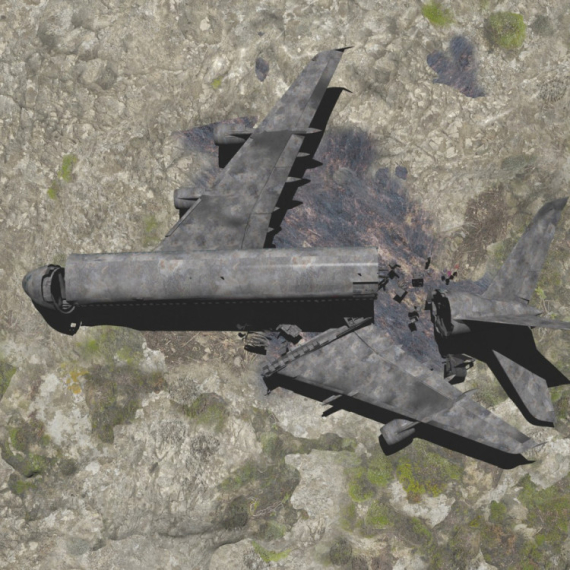

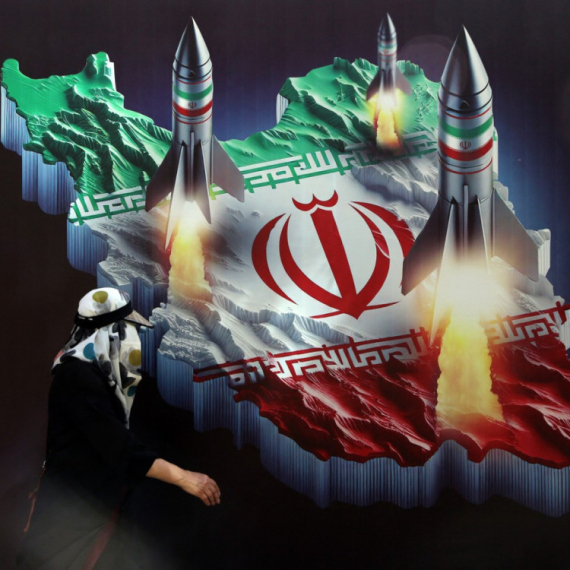








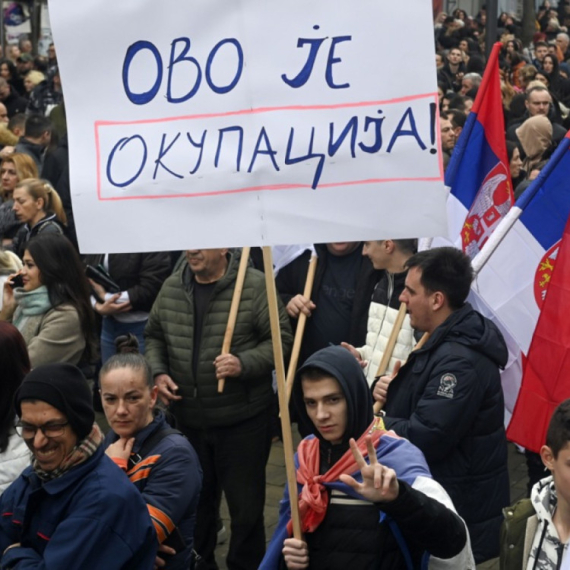
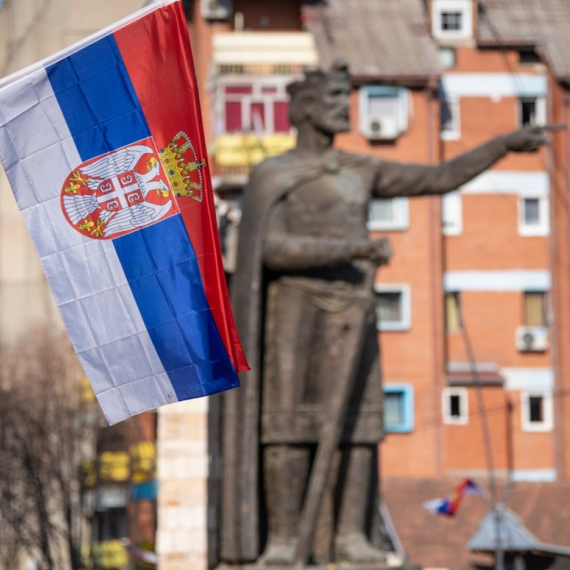
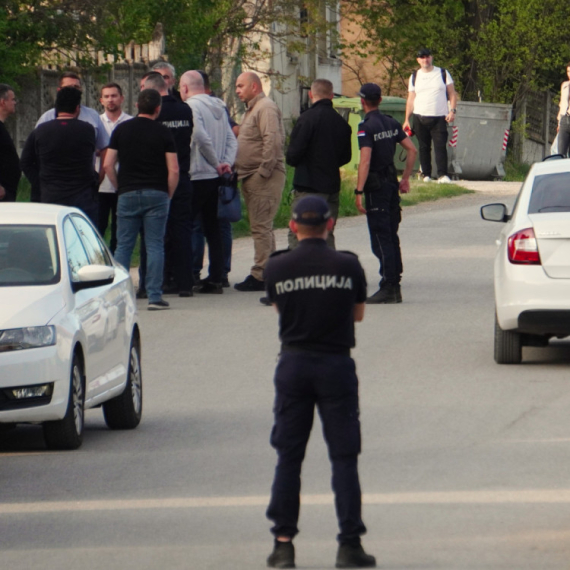

Komentari 13
Pogledaj komentare